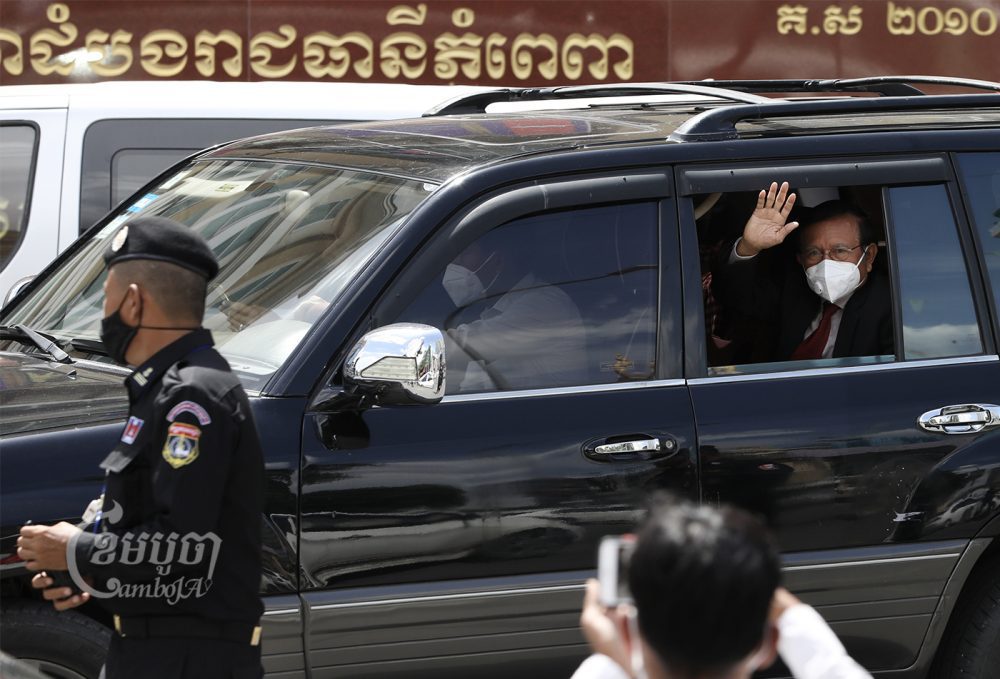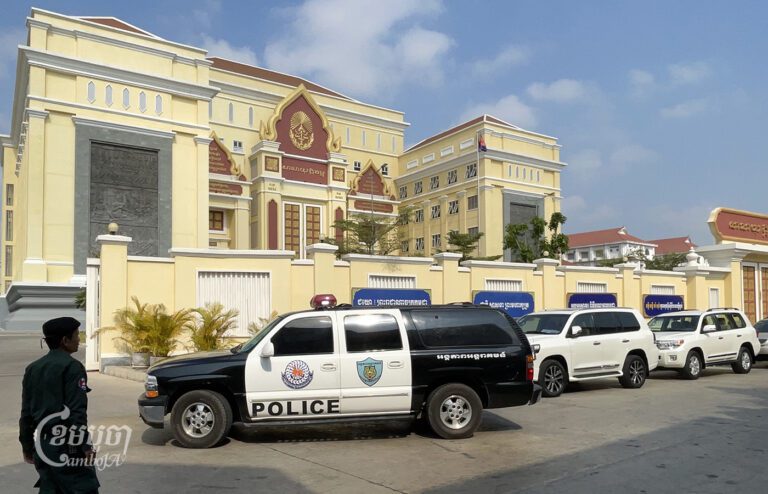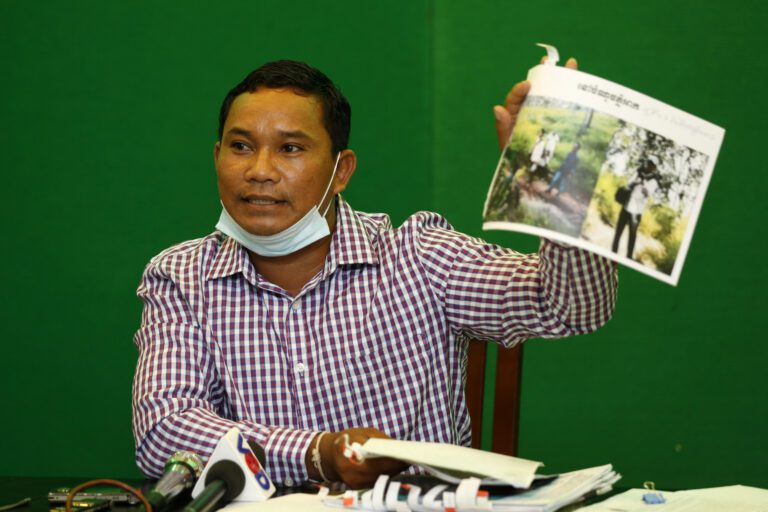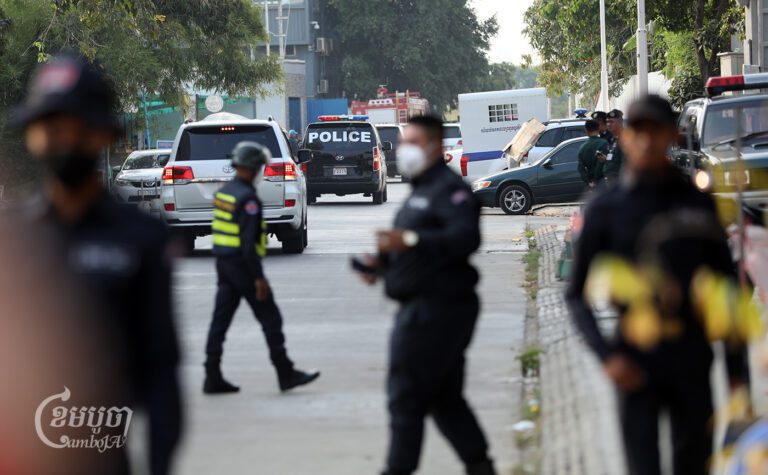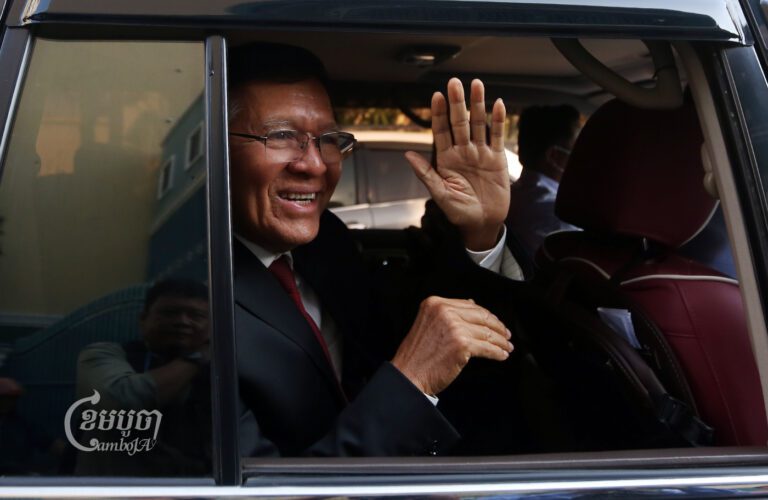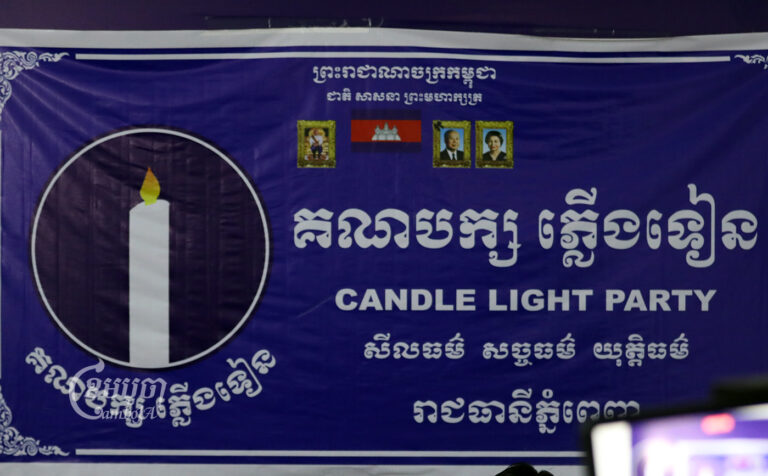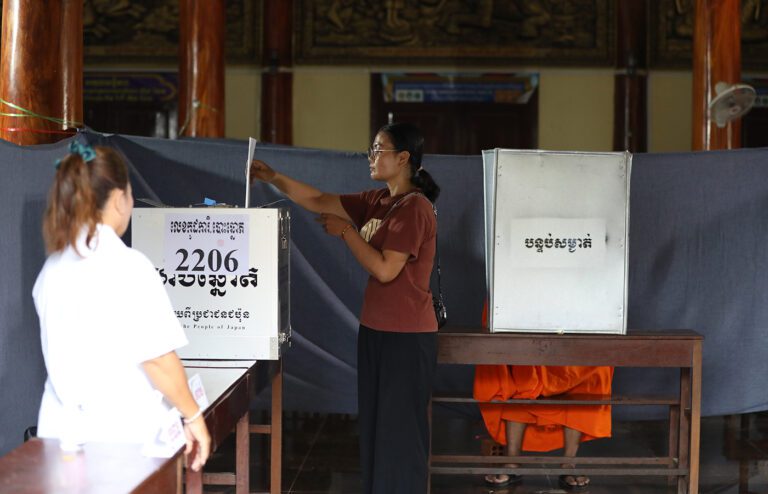Government prosecutors on Wednesday attempted to paint Kem Sokha’s work with foreign diplomats and journalists as evidence of an attempt to overturn the 2013 election.
Mr. Sokha is on trial for treason, charged for allegedly conspiring with a foreign power to spark a so-called color revolution. He has denied the charges, calling his interactions with foreign dignitaries nothing more than ordinary political business.
“I met with legitimate ambassadors in Cambodia,” Mr. Sokha said. “They are not enemies of the Khmer people.”
During the 4-hour hearing, the prosecution played two video clips of Mr. Sokha addressing supporters at Freedom Park on December 27, 2013. In the speech, the former Cambodia National Rescue Party president said he had met with a “super-country embassy,” and that his party had trained demonstrators prior to mass protests in September that year.
Prime Minister Hun Sen has made numerous public statements alleging Mr. Sokha conspired with the U.S., but prosecutors never identified the country.
Phlang Sophal and Chhay Hong, deputy prosecutors for the government, took aim at Mr. Sokha’s embassy meetings.
“Who were those superpower ambassadors?” Mr. Phal asked. “And what did you discuss?”
Mr. Sokha asserted his right to keep details of the meetings confidential.
“I have the right not to reveal the names of superpower ambassadors,” Mr. Sokha said. “They are friends with Cambodia and have been helping develop the nation.”
Mr. Sophal fired back: “You had secret discussions, and you had a secret agreement with a foreign state.”
The defense quickly objected. Meng Sopheary, co-counsel for Mr. Sokha, argued that it was the prosecutor’s job to identify conspirators and prove crimes.
“Is it wrong that he met with ambassadors?” she asked. “Prosecutors have to find strong evidence or secret recordings to show he has committed crimes. They should not ask my client to incriminate himself.”
In the second video, prosecutors showed a foreign journalist on stage at Freedom Park. Mr. Sokha denied any relationship with the person, identified as Australian filmmaker James Ricketson but never named in court proceedings.
“I don’t know him,” Mr. Sokha said.
Mr. Ricketson had been documenting the 2013 elections. He was charged in 2017 with espionage and sentenced to six years in prison. Prosecutors said Mr. Ricketson was spying for an unnamed foreign government. He received a royal pardon in 2018 and was deported.
During a meeting with supporters in Washington earlier this year, Hun Sen tried to walk back claims that Mr. Sokha had been plotting with the U.S.
“Neither the court nor the government accused the United States,” he said. “This is not about Cambodia and the United States. It is about Kem Sokha. We are not accusing the United States of helping Kem Sokha to overthrow the government.”
Yi Soksan, a senior investigator with Adhoc, a human rights group, has been closely following the trial. He said the case should never have landed in court.
“This is a political issue,” he said. “The court should drop the charges and resolve this case in a political way.”


